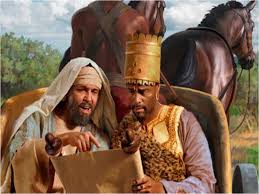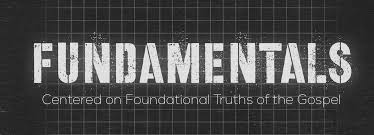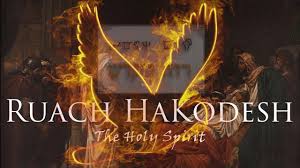Bb – Un etíope pregunta sobre el cap. 53 de Isaías 8: 26-40
Un etíope pregunta sobre Isaías 53
8: 26-40
34 dC
Un etíope pregunta sobre Isaías 53 ESCUDRIÑAR: ¿Por qué el eunuco visitó Jerusalén? El eunuco estaba leyendo Isaías 53. ¿En qué encaja Yeshua en la imagen de Aquel que allí se describe? Si usted fuera Felipe usando Isaías 53, ¿qué enfatizaría sobre el evangelio? ¿Cómo preparó Dios el camino para su mensaje? ¿Cuál es la relación entre la preparación divina y la iniciativa humana en este relato? ¿Cuál es el significado de esta historia para la Iglesia/Comunidad Mesiánica que estaba siendo perseguida en Jerusalén? Hasta ahora, ¿cuál ha sido el efecto de la muerte de Esteban en Felipe? ¿Y sobre la Iglesia/Comunidad Mesiánica en su conjunto? ¿Qué es el camino de Isaías?
REFLEXIONAR: En cuanto a la forma en que Dios establece oportunidades para testificar (2:5-14, 3:6-16, 8:26-40), ¿cómo eso lo libera a usted de los temores en la evangelización? ¿Qué muestran estas historias sobre el contexto en el que se llevará a cabo la evangelización? En el fondo, ¿cree usted que los directores ejecutivos exitosos realmente necesitan el evangelio tanto como los mendigos pobres? (3:2) ¿Por qué si o por qué no? ¿Conocería usted la Biblia lo suficientemente bien como para responder a las preguntas del eunuco? ¿Cómo puede crecer en su fe para estar preparado para oportunidades sorpresivas?
Felipe figura en una segunda historia, que nuevamente se ocupa de la expansión misionera de la Iglesia. La historia se incluye aquí porque trata sobre Felipe y porque forma parte del progreso gradual, pero inexorable, en Hechos desde los comienzos judíos de la comunidad mesiánica en Jerusalén, hasta el crecimiento gentil de la Iglesia hasta lo último de la tierra (1:8). No sólo eso, sino que esta historia también incluye a aquellos que fueron excluidos de los plenos derechos del judaísmo. La forma en que se cuenta la historia guarda cierta semejanza con otro relato en el que un extraño se unió a dos viajeros y les abrió las Escrituras, participó en una acto de ordenanza bíblica y luego desapareció repentinamente de la vista (vea el comentario sobre La vida de Cristo, Mh – En camino a Emaús).177
Después de que Pedro y Juan regresaron a Jerusalén (8:25), Felipe recibió un nuevo encargo. La historia se pone en marcha por una orden angelical dada a Felipe que lo alejó del escenario del evangelismo exitoso (vea Ba – Simón el mago), y lo llevó a un lugar que no parecía tan prometedor. En aquel tiempo, un ángel del Señor habló a Felipe, diciendo: Levántate y ve hacia el sur, al camino que baja de Jerusalén a Gaza, el cual está deshabitado (8:26). Había dos caminos desde Jerusalén a Gaza, y el Espíritu le ordenó a Felipe que tomara el que rara vez se usaba. Entonces levantándose Felipe, fue. Y he aquí un hombre etíope, eunuco, funcionario de Candace, reina de los etíopes, el cual estaba sobre todo su tesoro, quien había ido a adorar a Jerusalén (8:27). No luchó con la idea un tanto loca de ir por un camino caluroso y desértico. Sin embargo, obedeció inmediatamente, vio a un eunuco etíope. Etiopía, al sur de Egipto, es la Cus bíblica (Segundo Samuel 18:21-32; Jeremías 46:9), identificándose su población con los hijos de Cam, a través de su primer hijo Cus. Según la Biblia, el rey Salomón desarrolló una amplia red comercial a través de Egipto y Cilicia hasta Seba (al sur de Arabia) a través del puerto recién construido de Ezion -Geber en el mar rojo (Primera de Reyes 9:26-28, 10:1-13). Josefo identificó a la reina de Seba como la reina de Etiopía (vea el comentario sobre la Vida de Salomón Bg – Salomón y la Reina de Seba).178 Esta remota, pero avanzada cultura fue objeto de infinita curiosidad para los griegos y romanos que la consideraban lo último de la tierra. En otras palabras, el eunuco había viajado una distancia no pequeña y era un funcionario de un reino no pequeño.179
Este funcionario de la corte era responsable de todo su tesoro. La palabra funcionario de la corte en griego es dynástes, y de aquí proviene la palabra dinastía. En Lucas 1:52 se usa para gobernantes. En Primera de Timoteo 6:15 se usa la misma palabra para referirse a Dios. El hecho de que se use esta palabra de él significa que tenía una posición muy alta e influyente en el gobierno. En términos modernos, fue ministro de finanzas de Etiopía, uno de los cargos más altos de su gobierno. Entonces, su influencia en Etiopía habría sido grande.
Candace, reina de los etíopes: Este no era un nombre propio, sino como César, Faraón y Abimelec, un título oficial. Debido a que el Reino de Etiopía era un matriarcado, el rey de Etiopía era considerado un hijo del sol y, por lo tanto, demasiado sagrado para realizar cualquiera de las funciones humanas de la realeza. Por lo tanto, la reina madre desempeñaba todos los deberes reales y siempre tuvo el título de Candace y el poder real detrás del trono.
Había ido a adorar a Jerusalén (8:27b) y ahora regresaba; adorar, del griego: proskynéo, que también significa besar el rostro. Estaba tan preocupado por su vida espiritual que viajó al menos sesenta días a Jerusalén para adorar al Dios de Abraham, Isaac y Jacob, pero su corazón todavía no estaba satisfecho. Este etíope representa a muchas personas hoy en día que son religiosas, leen las Escrituras y buscan la verdad, pero no tienen la fe salvadora en Yeshua Mesías. Son sinceros, pero están sinceramente perdidos. Necesitan que alguien les muestre el camino.180
El regresaba sentado en su carro leyendo al profeta Isaías (8:28), y el carro era tirado por bueyes. Esta era y es una práctica común en el Cercano Oriente, incluso cuando lo hacen para su propio conocimiento, sin ninguna intención de ser escuchados por otros. Mueven la cabeza, e incluso toda la parte superior del cuerpo, de un lado a otro mientras leen, y pronuncian palabras con un tono que se acerca más al canto que a nuestro modo desapasionado de leer.181 Sin la orquestación de los acontecimientos por parte del Ruaj, esta reunión nunca habría tenido lugar en absoluto. Una vez más esto enfatiza la obra soberana del Ruaj HaKodesh en la salvación.
¿Cómo un eunuco entró en contacto con el judaísmo? no se nos dice. El término eunuco normalmente indica una persona que ha sido castrada; A tales personas se les prohibía la entrada al Templo según la Torá de Moisés (Deuteronomio 23:1). Eso significaba que él nunca podría ser un prosélito pleno. Había tres niveles de relación de los gentiles con el judaísmo.
El primer nivel eran los temerosos de Dios: Estos eran gentiles que se convencieron de que ADONAI era el único Dios verdadero, abandonando su paganismo e idolatría, pero no eligieron convertirse en prosélitos de ninguna forma, y por lo tanto, no adoptaron las costumbres o prácticas judías (vea Be – La visión del centurión).
El segundo nivel eran los prosélitos en la puerta: La Puerta era el muro intermedio de separación (Efesios 2:14) en el recinto del Templo que a los gentiles no se les permitía traspasar bajo pena de muerte (vea más abajo). Ellos adoptaron muchas prácticas judías como celebrar el Shabat y las fiestas de Israel, pero no llegaron a ser prosélitos completamente. La mayoría de estos eran hombres porque no se requería la circuncisión.
Y el tercer nivel eran Prosélitos del Pacto: Entraron al Pacto del Sinaí como judíos plenos, por así decirlo. La mayoría eran mujeres porque este nivel requería la circuncisión.182
Entonces, debido a que el eunuco etíope había sido castrado, hizo lo mejor que pudo y se convirtió en prosélito de la puerta. Y eso significaba que había adoptado muchas de las prácticas del judaísmo; de hecho, hizo todo lo que hubiera hecho un prosélito excepto la circuncisión. Sin embargo, a pesar de su poder y prestigio, el etíope tenía un gran vacío en el alma. Él había viajado a Jerusalén para adorar en ocasión de una de las tres fiestas de peregrinar, ya sea Sucot (Cabañas), Pesaj (Pascua) o Shavuot (Semanas), y estaba en su viaje a casa, pasando el tiempo leyendo su traducción griega del TaNaJ.183 Esta no fue una visita de estado, fue a adorar a ADONAI, él tenía hambre de la Palabra de Dios. Era este hombre con quien Felipe se encontraría en un camino solitario del desierto. El eunuco es un ejemplo clásico de aquel que estuvo a la altura de la luz que tenía. Luego Dios le dio la revelación completa de Yeshua Mesías a través del ministerio de Felipe.
En todo el TaNaJ, Isaías tiene la mayor esperanza para el eunuco en su descripción del futuro ideal de Dios, un futuro que promete un memorial en la casa de Dios, un nombre mejor que el de hijos e hijas, un nombre eterno que nunca será borrado (vea Isaías 56:3-8). El eunuco no sabía que estaba a punto de experimentar el cumplimiento de esas promesas. Y poco sabía Felipe de su propio papel en su cumplimiento. Probablemente Felipe todavía se preguntaba por qué Dios lo había enviado a este lugar solitario, y tal vez estaba un poco desconcertado por el extraño espectáculo del carro tirado por bueyes frente a él (avanzando lentamente a poco más que un paso de caminar), con su exótico pasajero y su séquito siguiéndolo detrás. Entonces, de repente, por segunda vez en la historia, Felipe recibió un mandato divino. Entonces el Espíritu dijo a Felipe: Acércate, y júntate a ese carro (8:29).184 Los rabinos enseñaban que cuando Dios habla en el cielo, “la hija de Su voz”, el batkol, o un eco, se escucha en la tierra. Después del último de los profetas, se consideró que Dios proveyó el bat-kol continuo brindando orientación a la gente (Tratado Yoma 9b).
A pesar de que el séquito del eunuco debió ser impresionante, Felipe no se dejó intimidar. Obedeciendo instantáneamente a la voz del Espíritu Santo, Felipe corrió hacia el carro que avanzaba lentamente y comenzó a trotar a su lado. Allí escuchó al etíope leer al profeta Isaías. Como era un hombre de posición, habría tenido un conductor manejando el carro tirado por bueyes. Por lo tanto, habría tenido tiempo de leer. No sólo eso, sino que, por la providencia de Dios, este hombre estaba leyendo una de las profecías mesiánicas clave que apuntaban a Yeshua (Isaías 52:11 a 53:12). En ese momento, Felipe probablemente supo que ADONAI le había dado una puerta abierta, un corazón preparado.
Cuando tuvo una oportunidad corriendo Felipe, lo oyó leyendo al profeta Isaías, y dijo: pero, ¿entiendes lo que lees? (8:30). Felipe no preguntaba si el eunuco entendía las palabras que estaba leyendo. Lo que realmente quería saber era: “¿Sabe de quién habla el pasaje?” Era bueno para el etíope leer Isaías, pero a menos que el entendimiento fuera traído a él, no habría ningún beneficio de su lectura. El libro de Hechos ya se ha referido cuatro veces a Yeshua como el Siervo de Dios (3:13 y 26, 4:27 y 30). La interpretación judía moderna entiende que este siervo es el pueblo de Israel y no el Mesías (vea el comentario sobre Isaías Iy – La muerte del Siervo sufriente).
La experiencia de Felipe debería animarnos en nuestro testimonio personal del Señor. Para empezar, ADONAI dirigió a Felipe hacia la persona adecuada en el momento adecuado. Es poco probable que usted y yo tengamos un ángel que nos instruya, pero podemos conocer la guía del Espíritu Santo en nuestro testimonio si caminamos en el Espíritu y oramos por la dirección de Dios.185
Dios ya había preparado el corazón del hombre para recibir el mensaje de Felipe. Entonces el etíope contestó: Y ¿cómo podría, si alguno no me guía? Y rogó a Felipe que subiera a sentarse con él (8:31). Se dio cuenta de que necesitaba a alguien que interpretara el pasaje. El corazón del evangelista debe haber estado regocijándose en la confianza de que YHVH había preparado así a este eunuco. Tenía un espíritu de búsqueda, humildad y enseñanza. Pero el pasaje era Isaías 53:7b-8, y desconcertó al eunuco.

Como ministro de finanzas de Etiopía, era muy probable que hablara griego leyendo de la Septuaginta (LXX), el idioma internacional de la época. El pasaje de la Escritura que leía era éste:
Como oveja fue llevado a la matanza;
Y como cordero mudo delante del que lo trasquila,
Así no abrió su boca (8:32).
En la humillación su juicio fue quitado;
¿Quién contará su generación?
Porque su vida es quitada de la tierra (8:33)
Es decir, dado que Yeshua murió físicamente, no tendrá descendientes físicos. Esto es un lamento. Pero el lamento resulta injustificado en el caso de Yeshua, porque Él ha resucitado de entre los muertos, y en Él hay muchos hijos espirituales, como diría Isaías unos versículos después: verá Su descendencia, Vivirá por días sin fin, y la voluntad de YHVH triunfará en su mano (Isaías 53:10b LXX). Dios hace lo inesperado, proporcionando descendientes para Aquel que murió sin esposa ni hijos. Porque su vida fue quitada de la tierra.
Tomando la palabra, el eunuco dijo a Felipe: Te ruego, ¿de quién dice esto el profeta? ¿de sí, o de algún otro? (8:34). Su confusión es comprensible, ya que el pensamiento judío contemporáneo estaba dividido sobre la interpretación. Isaías no cumplió con los requisitos del pasaje, a pesar de que era un siervo de Dios. Entonces Felipe, abriendo su boca, y comenzando desde esta escritura, le proclamó a Jesús (8:35). La frase “abrir la boca” se utiliza cuando va a seguir algo de gran importancia. He aquí, pues, el clímax de la conversación. Felipe desarrolló algunos puntos en común con el etíope al hablar de Isaías, pero se dirigió a proclamar las Buenas Nuevas sobre Yeshua. Claramente, su primer paso fue mostrar que el Mesías fue quien cumplió la profecía de Isaías. Una descripción del carácter general de Yeshua y la forma en que sufrió injustamente y fue condenado a muerte probaría el punto.
El hecho es que Isaías 53:7-8 no fue toda la historia, sino sólo el punto de partida. Y yendo por el camino, llegaron a cierta agua; y el eunuco dice: ¡Mira, agua! ¿Qué impide que yo sea bautizado? (8:36) Obviamente, Felipe debe haberle hablado del discurso de Pedro sobre la respuesta apropiada a la Buena Nueva: ¡Arrepentíos y sea bautizado cada uno de vosotros en el nombre de Jesús el Mesías para perdón de vuestros pecados, y recibiréis el don del Espíritu Santo! (2:38). De la misma manera, se puede suponer que el eunuco debió darle a Felipe su profesión de fe en Yeshua Mesías.186 Entonces el eunuco mandó parar el carro; y ambos, Felipe y el eunuco, bajaron al agua, y lo bautizó (8:38) para poder hacer una confesión pública. Felipe estuvo de acuerdo y ambos bajaron al agua y Felipe lo sumergió. La inmersión es la confesión pública de una convicción interior. Entonces el eunuco no sólo confesó su fe personalmente a Felipe sino abiertamente delante de toda su caravana.
Pero la falta de una mención clara de la profesión de fe del eunuco, llevó a uno de los primeros escribas a “mejorar” la historia agregando este versículo. ” Y Felipe dijo: Si crees con todo tu corazón, puedes. Respondió él y dijo: Creo que Jesucristo es el Hijo de Dios (8:37)”. Los manuscritos más antiguos y confiables, sin embargo, no incluyen este versículo, así que yo tampoco.
Y cuando subieron del agua, el Espíritu del Señor arrebató a Felipe, y el eunuco no lo vio más, pero prosiguió gozoso su camino (8:39). La palabra arrebató, del griego: harpazo, significa arrebatado, ser llevado repentina y milagrosamente. Esta es la misma palabra que usó Pablo al describir el arrebatamiento de la Iglesia: Después nosotros, los que vivamos, los que hayamos quedado, seremos arrebatados simultáneamente con ellos en las nubes al encuentro con el Señor en el aire, y así estaremos siempre con el Señor (Primera Tesalonicenses 4:17). Al realizar este sorprendente milagro el Ruaj HaKodesh confirmó a toda la caravana que Felipe era en verdad su portavoz. En cuanto al eunuco, siguió su camino, gozoso del gozo en el Señor. El gozo del etíope, incluso después de la abrupta partida de Felipe, demostró que su fe estaba firmemente arraigada en Dios, no en Felipe. Lucas no nos cuenta la historia posterior del eunuco etíope, pero según el padre de la iglesia Ireneo, se convirtió en misionero entre los etíopes y quizás estableció la primera iglesia en el continente africano.187
Y Felipe fue hallado en Azoto, y al pasar, evangelizaba a todas las ciudades, hasta que llegó a Cesarea (8:40). Azoto (el nuevo nombre griego de Ashdod), estaba a unos 32 kilómetros al norte de Gaza. Felipe continuó haciendo la obra de evangelista. Allí se casó y se estableció (21:8-9). Como resultado, Cesarea se convirtió en el nuevo centro de los creyentes helenísticos de Judea. Puede haber sido debido a la predicación de Felipe en esta área que se establecieron iglesias en Lidia y Jope (vea Bd – Señales y milagros siguen a Pedro). Cesarea continuó siendo un refugio para los creyentes judíos helenísticos hasta el año 66 dC cuando, como resultado de la revuelta judía, los líderes de la congregación mesiánica en Cesarea emigraron del país a la provincia de Asia, o lo que hoy es Turquía.188
En octubre de 1857, J. Hudson Taylor comenzó a ministrar en Ningpo, China, y guió al Sr. Nyi a Cristo. El hombre estaba muy feliz y quería compartir su fe con los demás. El señor Nyi le preguntó un día a Hudson Taylor: “¿cuánto tiempo hace que tenéis las Buenas Nuevas en Inglaterra?” Taylor reconoció que Inglaterra conocía el evangelio desde hacía siglos.” Mi padre murió buscando la verdad”, dijo Nyi.” ¿Por qué no vinieron antes?” Taylor no tenía respuesta para esta penetrante pregunta. ¿Hace cuánto que conoces el evangelio? ¿Hasta qué punto lo has compartido personalmente?189
El Dios de Israel desea brindar a la gente Su descanso y paz a través de una relación eterna consigo Mismo. Los siguientes cinco principios, tomados del profeta Isaías, nos ayudan a reconocer cómo podemos tener esa relación. Así como los creyentes a menudo han usado una serie de versículos de Romanos llamado “el camino de romanos”, los creyentes mesiánicos, al testificar a los judíos, pueden usar una serie diferente de versículos de Isaías llamado “el camino de Isaías”.
Pecadores ante Dios
Todos nosotros somos como cosa impura, Y nuestra justicia como trapo de menstruo. Todos nosotros nos marchitamos como hojas, Y la mano de nuestras iniquidades nos arrastra como el viento (Isaías 64:6). Podemos juzgarnos a nosotros mismos según normas relativas, pensando: “yo soy tan bueno como cualquier persona” o “yo no soy peor que cualquier persona”. Sin embargo, Dios nos juzga a cada uno de nosotros según Sus normas absolutas de Sí mismo y de su Torá: Habla a toda la asamblea de los hijos de Israel, y diles: Sed santos, porque Yo, YHVH vuestro Dios, soy santo (Levítico 19:2). Según Sus normas, todos somos fracasos morales.
Por supuesto, usted puede ser una buena persona y quizás recuerde llamar a su mamá el Día de la madre; es sólo que usted y “la persona a su lado” todavía no alcanzan las elevadas normas santas de Dios. Por cierto, todo rabino o pastor mesiánico tiene el mismo problema. El Salmo 14:3 declara: Todos se desviaron, a una se han corrompido, No hay quien haga lo bueno, no hay ni siquiera uno. Todos nacemos con la enfermedad fatal del pecado transmitida a través de Adán. Así que nadie puede señalar con el dedo ni tirar piedras a nadie; todos tenemos el mismo gran problema del pecado original (ó la naturaleza pecaminosa).
Separación de Dios
He aquí que no se ha acortado la mano de YHVH de modo que no puede salvar, Ni su oído se ha endurecido de modo que no puede oír. Son vuestras transgresiones las que se interponen entre vosotros y vuestro Dios; Son vuestros pecados los que os ocultan su rostro, e impiden que os oiga (Isaías 59:1-2). El resultado de nuestra naturaleza pecaminosa es una relación rota con Dios. Ahora usted puede orar e incluso ayunar, pero la Biblia es clara: Él no escuchará. ¡Es como si yo hubiera robado dinero y luego hubiera tenido el descaro de acercarme a usted y pedirle un regalo! Su respuesta debería ser: “primero abordemos la ofensa pasada, luego puedo considerar su necesidad presente o futura”. Dios quiere bendecirlo, pero la naturaleza pecaminosa de usted lo separa de Él y debe lidiar con ella primero antes de que Él pueda bendecirlo.
Dado que esta separación continúa hasta nuestra muerte, se convierte en un juicio de separación eterna de Dios. Esto rompe el corazón de Dios. Él realmente lo ama y desea que tenga vida eterna con Él. Por eso la historia no termina aquí, sino que continúa con la Buena Noticia para su vida.
Salvación en Dios
Todos nosotros nos descarriamos como ovejas, Cada cual se apartó por su camino, Pero YHVH cargó en Él el pecado de todos nosotros (Isaías 53:6). Dios ha provisto el camino de la salvación y del perdón, ya que no podemos hacer nada, ninguna buena acción, para salvarnos a nosotros mismos. Los mejores quince minutos de nuestra vida no pueden salvarnos; el mayor logro de nuestras vidas tampoco puede salvarnos. Debido a Su gran amor, Dios ha prometido enviar al Mesías a morir como expiación o pago por nuestros pecados. En el Nuevo Pacto, el Mesías Yeshua dice que Él vino para dar Su vida en rescate por muchos (Mateo 20:28b). Ésta es la salvación y la relación correcta que Dios ofrece gratuitamente.
El Salvador es Dios
Porque un Niño nos es nacido, Hijo nos es dado; El dominio estará sobre su hombro, Y se llamará su nombre: Admirable, Consejero, Dios Fuerte, Padre Eterno, Príncipe de Paz. Lo dilatado de su principado y la paz no tendrán fin Sobre el trono de David y sobre su reino, Para disponerlo y afirmarlo con la justicia y el derecho Desde ahora y para siempre. ¡El celo de YHVH Sebaot hará esto! (Isaías 9:6-7). Sólo Dios mismo podría proporcionar el sacrificio perfecto por los pecados, ya que sólo Él es perfecto. Qué maravilloso amor y humildad que el Dios Poderoso de Israel naciera, viviera como hombre y muriera como el pago perfecto por nuestros pecados. El Mesías Yeshua es Adonai, el Señor.
Seguridad eterna con Dios
Tú guardarás en completa paz a aquel cuyo pensamiento en ti persevera, Porque en ti ha confiado (Isaías 26:3). La paz perfecta (shalom shalom) se encuentra sólo en Dios y es accesible sólo a través de la fe en el Mesías. El reconocimiento simple de nuestros pecados y fe en el Mesías Yeshua como nuestro sustituto, nuestro sacrificio, nuestra expiación salvadora, es la acción necesaria para una relación correcta con Dios. La Biblia dice de Abraham: Y creyó a YHVH, y le fue contado por justicia (Génesis 15:6). Al igual que Abraham, usted puede tener una relación correcta con Dios por la fe en lo que sólo Él ha provisto. Aquí usted tiene una oración sencilla que le ayudará:
Señor, por favor perdóname por todos mis pecados a través del sacrificio del Mesías en la cruz por mí.
Ayúdame a seguir a Yeshua y honrarte.
Gracias a Ti por amarme. Amén. 190
Si ha hecho esta oración, mire el comentario sobre La Vida de Cristo Bw – Lo que Dios hace por nosotros en el momento de la fe.
PÁGINA SIGUIENTE: Saulo pasa de asesino, al Mesías Bc
Volver al Esquema de contenido


















